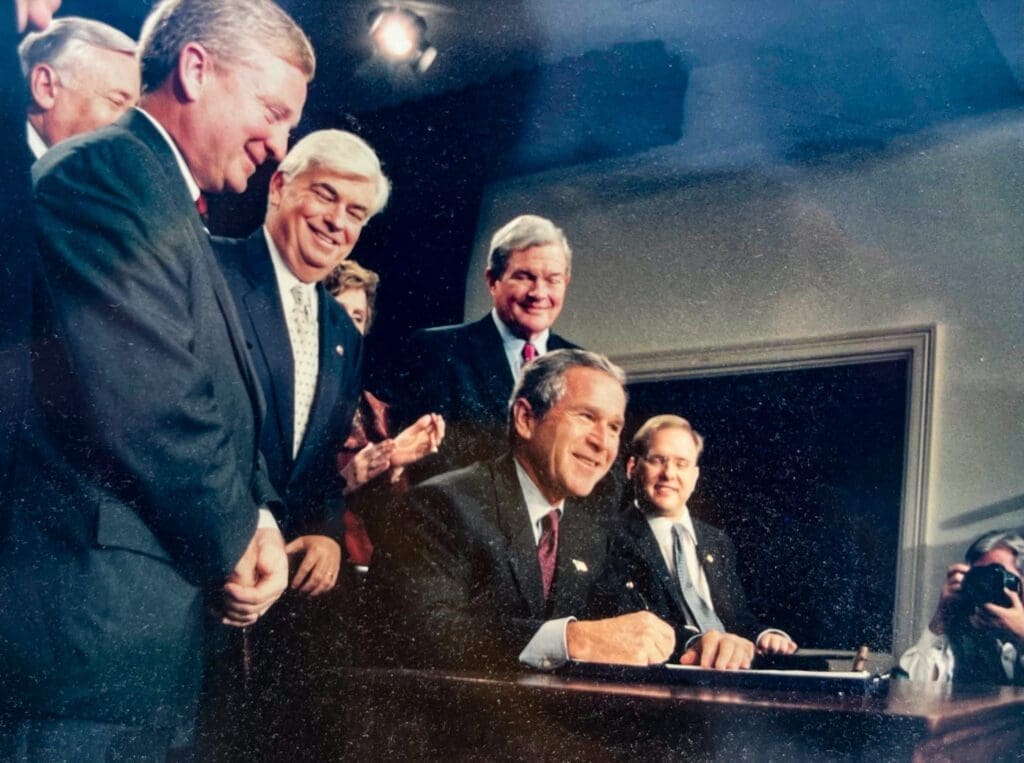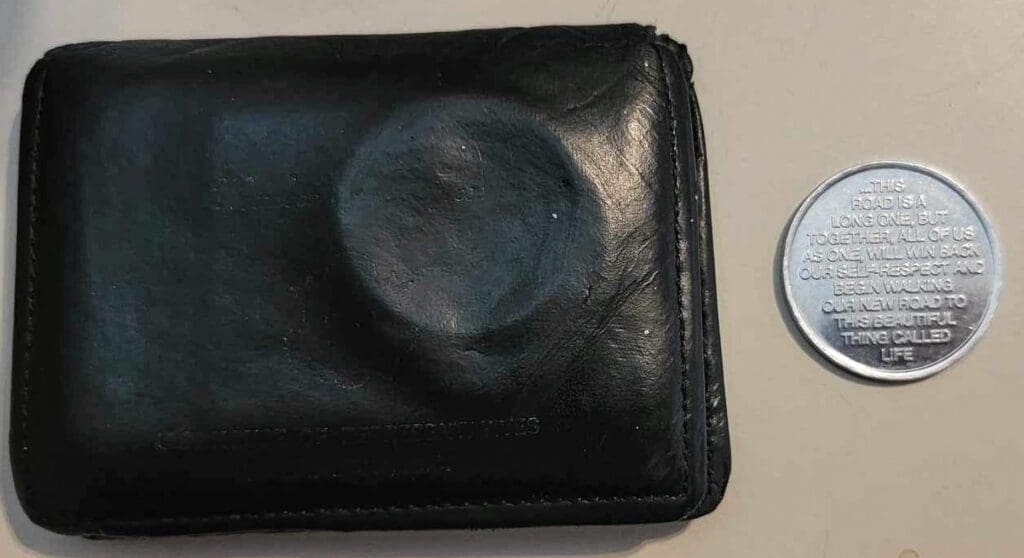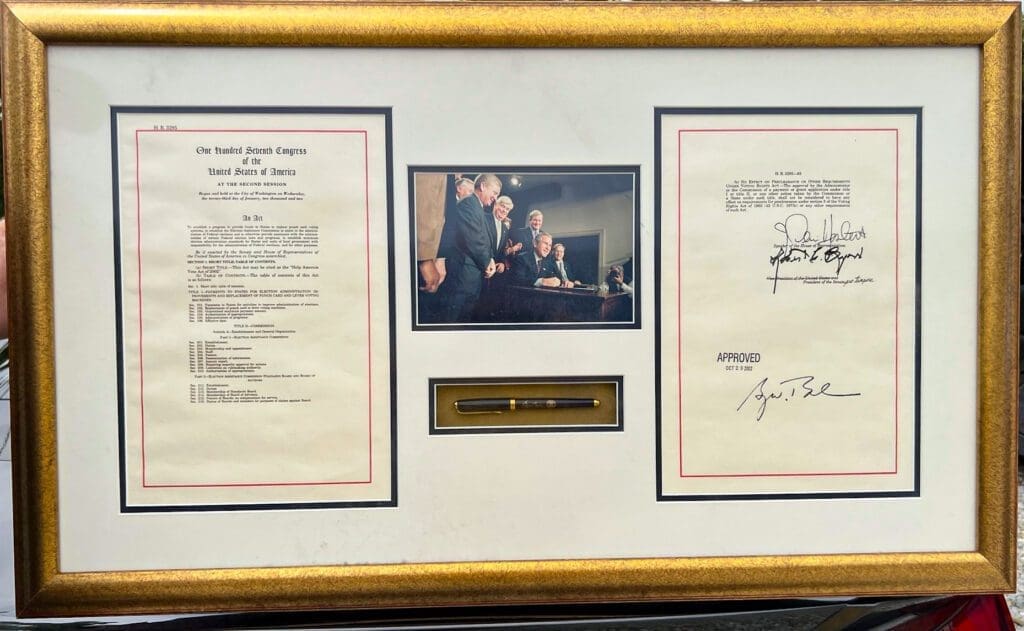(Publisher’s Note: This article is the second of a two-part series written by new contributing writer Dimitri Vassilaros. Vassilaros hosts “Dimitri – Live & Dangerously Local!” on River Talk – Ohio Valley 100.1/100.9FM and AM1290/1430 each week Monday through Wednesday from 7-9 a.m.)
Mom was in a Wheeling hospital. Perforated colon. Might not make it.
That was the news delivered by Bob Ney’s sister the same evening he left a Cleveland alcohol rehab center after just three days.
His mother, though, somehow survived. After visiting her in the hospital, Ney headed back home that night from West Virginia when he saw a familiar interstate exit in Ohio that was the shortest route to his favorite bar in Cambridge.
It was well before midnight. He was alone in the bar’s parking lot. Ney said that he was planning to go in to drink because “Mom lived.” He knew he would have done the same had she died.
“I’m three days sober, whoop-de-do,” Ney said to himself. He calls that the start of his “bright-light moment.”
“I’m like, oh my God, I’m insane. What the hell’s wrong with me? There is something horribly, horribly wrong with me. I’m about to go in there. I know what I’m about to do,” Ney said.

But he didn’t take that first step toward the bar. Instead, Ney started calling other recovery centers and found an affordable one that would accept him as an outpatient.
Ney started going to recovery meetings about that time.
In the first 90 days of his journey to find sobriety, Ney said that he attended at least 360 recovery meetings. When he wasn’t at a meeting, he was stuffing 693 boxes with his worldly possessions to take them out of the home that the mortgage company soon would repossess.
Even though he had stopped drinking and had begun to address the underlying causes and conditions that triggered his desire for alcohol, life started to become more challenging.
Ney had lost most of his material possessions. And now, being homeless, he couch-surfed in the homes of family and friends for about two months before heading to Morgantown. But there was one issue that was more embarrassing to Ney than all the other trials he’d endured. And it was announced at that very public pre-trial hearing; Ney was insolvent.
Humiliations continued to pile on during his incarceration, long after the initial body-cavity search. The head counselor of the prison’s drug-and-alcohol recovery program was stern with a biting sense of humor.
She told her celebrity inmate “You ran the House, but you couldn’t run your own house.”
One of the inmates blamed his imprisonment on Ney.
“Hey! You that congressman? You put me in here.” he said to Ney. Sponsoring even one anti-drug bill that can be a tool for law enforcement to arrest and convict users and sellers does not make former congressmen popular in federal prisons. At least, not at the Morgantown facility.
“I was dejected, broke and nervous,” Ney said. But he didn’t drink or drugs, even though almost any prisoner there could get just about any illegal substance if he wanted it badly enough, he said.

Ney also was committed to attending the prison drug and alcohol recovery program, which included grueling group therapy, and raw rigorous honesty in front of a captive audience of 59 other addicts. Ney said he had had so many resentments that they could be computerized. He had much to say at those meetings. And his cellmates freely offered scathing tough-love feedback after he spoke.
Ney decided that the first step to solving his prison problem was the same one that he was using for his drinking problem; “I needed to survive, one day at a time,” he said.
Ney also embraced the prison philosophy of “be friends with everybody, but don’t be friends with anybody.”
Ney completed his sentence, but he hasn’t stopped working on his daily reprieve from alcoholism. He now believes that there’s no such thing as a “functional alcoholic,” even though Ney thought he was one before the scandal.
“It’s beyond stopping,” Ney said. “You need behavioral change. Alcoholics are not bad people, just sick ones. Recovery is medicine.”
Ney stopped drinking on September 13, 2006. He knows he could start tomorrow. The 24-hour recovery coin that he accepted a few days after he stopped remains tucked safely in his wallet.
It reads “… this road is a long one, but together, all of us as one, will win back our self-respect and begin walking our new road to this beautiful thing called life.”
That coin gradually embossed itself on one side of Ney’s bi-fold wallet. It’s stark relief for anyone who feels that serenity is priceless.
Ney offers to help other alcoholics, including being a sponsor – a type of guide or mentor to help steer a newcomer away from his current mindset and towards a sober one.

The lessons that Ney learned in the prison recovery program still are useful. He tells those who he sponsors not to play him if they don’t want recovery. Be honest. Develop a sense of gratitude for what they have.
When Ney is having a bad day, he thinks about the juice and the raisins at that hospital in Afghanistan that his congressional delegation had visited.
The unit included 10 severely malnourished Afghan children who drank from juice bottles and ate raisins to help them stay alive. As a gesture of profound gratitude for the aid that America had given that tortured pile of rocks in South Central Asia, the mothers of those near-starving kids offered Ney and their other foreign guests some of their children’s juice bottles and raisins.
After Ney translated what the moms were saying, everyone in his group wept.
When there is a temptation to drink, Ney said to think of the worst thing you’ve ever seen in order to be grateful, juice bottles and raisins, for instance. “Stay in the moment,” he said. An attitude of gratitude, in program-speak.
Mere fender-benders also can be life collisions.
Ney said that in order for him to stay alive, to survive, and to thrive, he still makes many meetings. If there’s one key to his survival, it is this: “Meeting makers make it.”
Now, leading by example is how he’s going to show them, and how he’s going to teach them.
“I think it is the right thing to do,” Ney said.




